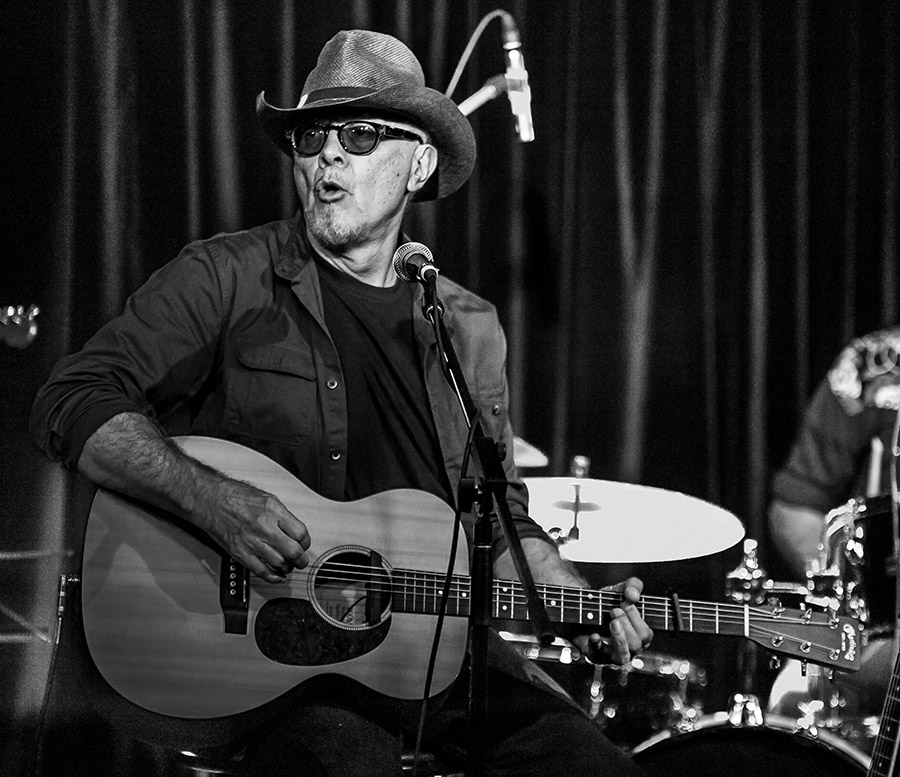Australian singer-songwriter Glenn Cardier is known in the UK for his time there in 1974-78 where he was produced by Labi Siffre and opened for Fairport Convention and Man. Glenn’s material was also recorded by Fairport’s Dave Pegg (Dance Numbers) and Olivia Newton-John (New Born Babe). Glenn re-emerged 20 years ago and shares his story with Jason Barnard.
Where were you born and raised? What were your early influences and first steps in music?
I was born and raised in Brisbane, Queensland. Brisbane used to be described as an overgrown country town. Music on the radio was mainly easy listening and country and western till Elvis Presley hit in the mid 50’s. I didn’t realise until much later that I was a Leiber and Stoller fan since they wrote many of his early hits. I loved the lyrics. Also the lyrics of Chuck Berry. Later on I fell under the spell of Hank Marvin of the Shadows. My parents saved up and bought me an electric guitar and amp. I started writing guitar instrumentals in the Shadows/ surf style pretty much straight away. I embraced the Brisbane folk scene and my interest in lyric writing grew from around the mid to late 60’s.
What led to your first deal with Festival Records?
I won a tv talent show called New Faces. This led to an appearance on Australia’s Bandstand. Festival liked what they saw and signed me up.
What do you remember about writing and recording your first LP Days Of Wilderness?
Looking back, I suppose my performing style was reflective of the Brisbane folk scene. I was a rather gentle and poetic artist. All that changed once I relocated to Sydney.
Why did you base yourself in Britain from 1974?
I was lucky enough to secure a travel grant from the Australian Council for the Arts to play the folk clubs in the UK. I hung out with Trevor Lucas, Sandy Denny, Dave Pegg and the Fairport crowd. Dave liked my song Dance Numbers which was about a guy who suddenly finds that the street he’s walking down has turned into a Hollywood musical.
–
What was Labi Siffre like as a producer for your eponymous 1976 album?
At that stage, I was still writing for voice and guitar and I left the production and arranging up to others. I was quite starry eyed about being produced by a master songwriter in a studio in London. I couldn’t believe Brian Bennett from the Shadows was playing drums on my record.
Some of your material was recorded by other artists including Olivia Newton-John (New Born Babe). Did you have any contact with her?
I met Olivia once or twice in London. We shared the same manager, Peter Gormley. I think she was in the States filming Grease when John Farrar was laying down that track at Abbey Road.
What was the music scene like when you were in England at the time?
The folk club scene in the UK really toughened me up. You really had to project from the stage. Grabbing an audience from the get go. I was playing solo and could still support a rock band such as Man to a pre-punk audience. It was a time of upheaval in the music scene. On the other hand, you could catch Randy Newman, John Prine or Loudon Wainwright at a gig just up the road.
What led you to leave and go back to Australia?
My daughter was about to start school and we thought it would be best to relocate to Sydney.
Do you have any memories/stories of supporting other acts?
I supported Cheech and Chong. AND I can still remember much of it. Dave Van Ronk. John Hammond. It was a thrill supporting Ray Davies more recently.
How have you adapted to changes in the music industry since the 1980s?
Computer home recording is very sophisticated now. I play most of the instruments on my recordings. I miss being in the same room as other musicians. The upside is that you can perfect the arrangement and recording over a longer time. Or you can dare to be spontaneous without having to worry about the meter running.
The last 20 years has seen you reinvigorated as a songwriter – what are your key songs and albums from this period?
I gave it all away for about 20 years before that. Once a writer, always a writer. I played an open mike night for a friend and the songs started flowing. I enjoyed writing and performing in the same way as the 70’s. Rattle The Cage was the first cd recorded at home. It was quirky and roots and led to gigs at folk and blues festivals and such. She Flew Away, Invisible Ink, Signs And Wonders, Water Finds It’s Own Level are all key songs. All are lyrically intriguing. Rust In The Tailfin, Wild At Heart, A Case Of Mistaken Identity. The list is long.
What are your future plans?
With the recent Covid lockdowns, I’ve decided to revisit many of those older songs and re-record them solo. I think I may have two or three volumes of songs which could be presented in this solo acoustic style. It’s quite exciting. They sound as fresh as ever.
Further information can be found at: glenncardier.com
Glenn’s back catalogue is available from glenncardier.bandcamp.com

